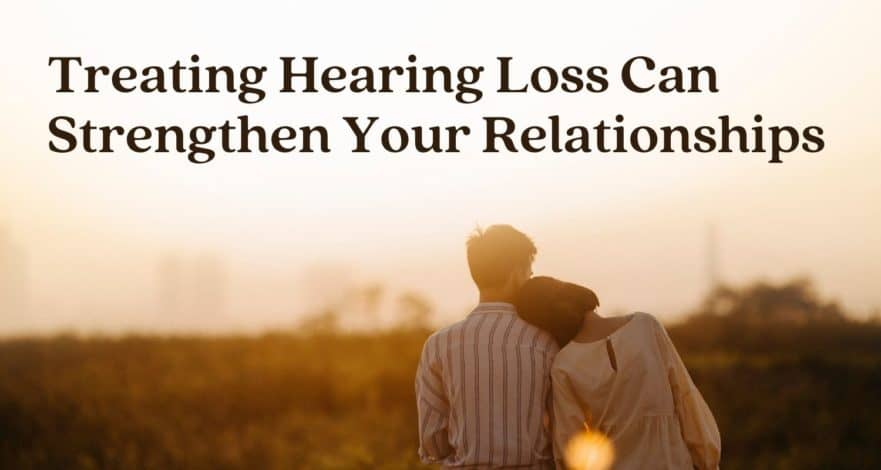Hearing loss is a fact of aging for an awful lot of us. About one-third of those aged 65–74 have hearing loss, and the fraction climbs to nearly half for those 75 and up. Nearly 100% of centenarians have hearing loss, suggesting we’ll all experience it if we only live long enough!
Hearing Loss Is Undertreated
Despite how common hearing loss seems to be, it is drastically undertreated. Only about one out of five people who need hearing aids is wearing them. On average, people wait seven years from the time they notice hearing loss to the time they get a hearing test and start treating it.
That gap in hearing ability may save you a little money, but is it worth it? Even mild hearing loss makes it extremely difficult to hear when background noise is present, and those with mild hearing loss are more likely to report memory trouble than those with normal hearing or hearing aids.
It’s easy to imagine that we can “weather the storm,” so to speak, and tough it out with hearing loss. We might say things like, “My hearing isn’t that bad,” or, “I’ll get hearing aids when my hearing gets worse.”
The problem is, hearing loss is “bad enough” as soon as you have it. The notion of “normal hearing” accounts for up to 20–25 dBHL (decibels hearing level) of loss at speech frequencies. “Mild hearing loss” doesn’t mean your hearing loss is negligible—it just means it could be more severe.
Hearing Loss Hampers Conversation
Hearing loss makes it difficult to remain in social situations for long. Conversations become shorter because hearing loss is exhausting. Straining to hear, trying to fill in the gaps with context clues, and asking for repetitions taxes the brain and wears us out.
As mentioned above, hearing loss seems to cause memory issues. This may be because the brain is so taxed in trying to understand what is being said, it doesn’t have the bandwidth to connect the dots to give real meaning to what is being said, and so is not able to commit it to memory.
Memories are made by a very creative process wherein we connect new events to memories of other events, thread them into a narrative, and ultimately have what amounts to a kind of story. We remember things because of the way they impacted us at the time we experienced them, read about them, or heard about them. By a nearly automatic action, the things we remember changed us in some way—large or small. When our brain is busy trying to make sense of sound it cannot hear clearly, it is harder for it to make meaning of what is happening, and thus harder to commit the moment to memory.
Hearing Loss and Relationships
Why are we talking about memory so much? Because memories are the stuff that relationships are made of. Possibly the two biggest problems that mild hearing loss brings with it—social fatigue and memory problems—are ultimately problems for our relationships.
When we get tired earlier, we spend less time with friends and family. If we can’t hear what’s happening at gatherings, we’re bound to participate less in the conversation. If we commit less of what we hear to memory, we don’t carry the experience forward and the relationships we have started to ring hollow.
Marriages and partnerships tend to suffer the most. Conversation is a key way that we express, renew, and deepen our intimacy. It’s not just talking about the big stuff—even the chit chat that might seem “meaningless” is key to maintaining our bond and our sense of well-being in the relationship.
When hearing loss enters the picture, conversations tend to become limited to only the most important discussions. This can leave both partners feeling lonely—like they have lost each other. There may be frustration and resentment in the mix, as well. It doesn’t have to be this way.
Hearing Aids Can Help
Hearing aids all but eliminate these potential relationship pitfalls. By letting you hear and understand speech clearly, hearing aids help you maintain the relationships that you consider important. A card game with friends, a holiday with extended family, and one-on-one time with your spouse or partner can be full of joy and connection—and you’ll keep making memories for years to come!

